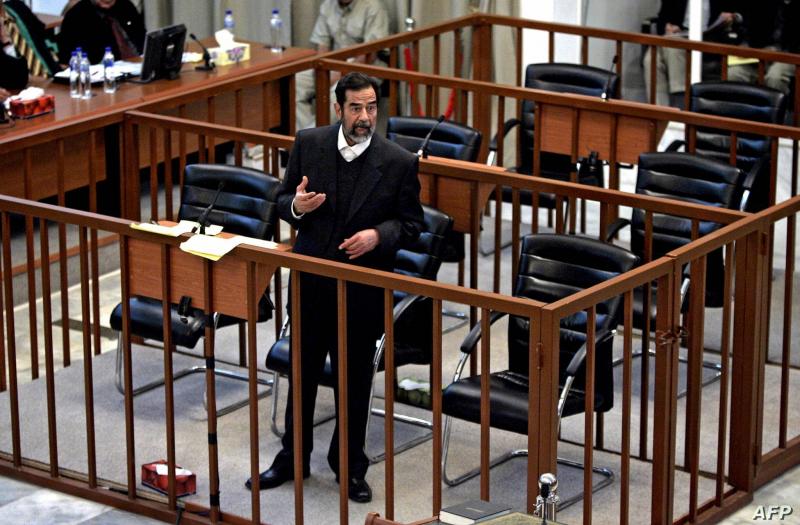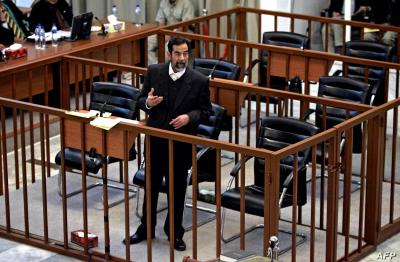The trial of Saddam Hussein in 2005, two years after he was overthrown by the U.S.-led invasion, represented an opportunity for Ali Hassan al-Haidari to avenge the execution of his brothers and others from his village at the hands of the late Iraqi dictator's security forces. Al-Haidari recalls the moment of the trial, stating, "This was a moment longed for by all of Saddam's victims... It was a moment of pride, honor, and dignity." He is one of the few individuals willing to reveal their faces while testifying in the court that sentenced Saddam Hussein to the gallows.
Al-Haidari, who was detained and tortured for four years after security forces arrested members of his village of Dujail following a failed assassination attempt on Saddam in 1982, said, "I, as the oppressed in Saddam's time, stood to demand the rights of the oppressed and the marginalized." Seven of his brothers were among the victims who were killed during the security forces' raid following the assassination attempt on Saddam while his convoy was passing.
Al-Haidari was just fourteen years old when he was arrested. Prosecutors revealed that more than 140 people from the Shiite village, located about 60 kilometers north of Baghdad, were subjected to persecution, torture, and murder. They disclosed that women and children were thrown into a desert detention camp, with many disappearing.
A video clip from the trial showed al-Haidari standing behind Saddam, who stated to the judges, "He bears responsibility for my detention, my lost future, and the execution of my brothers." Allowing his face to appear on television carried risks. He explained that he was subject to special security measures when going out, and his movements were restricted.
When the verdict was announced, Saddam shouted, "Long live the people, long live the nation, down with the traitors." Iraq fell into widespread turmoil following the overthrow of the Sunni leader Saddam. Al-Qaeda unleashed attacks that often targeted individuals of the Shiite sect to which al-Haidari belongs. A civil war erupted from 2006 to 2008. In 2014, the Islamic State seized a third of Iraq's territory.
Ayatollah Ali al-Sistani, the highest religious authority for Shiites in Iraq, issued a fatwa calling on Iraqis to fight against ISIS. Al-Haidari participated in the fighting that ultimately led to the collapse of the organization he helped to confront.




